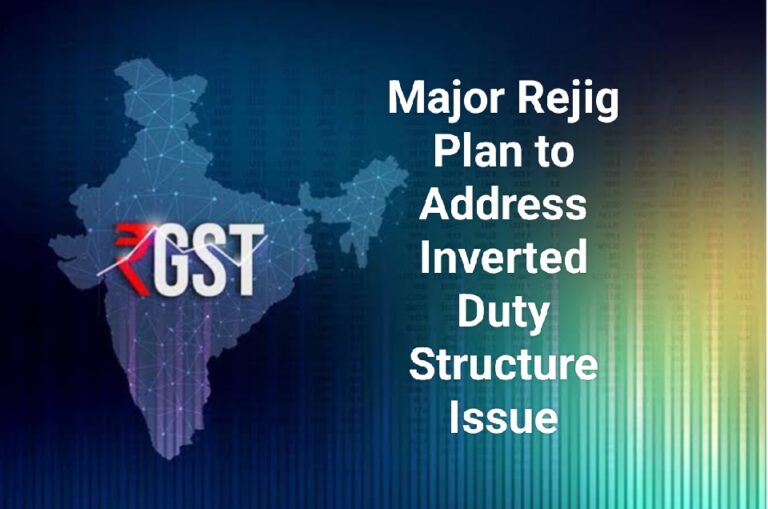Government Plan to Rejig GST & Customs Duty to Address Inverted Duty Structure Issues
Government plan to Rejig GST & Customs:The government is actively working to resolve the issues caused by the inverted duty structure, which distorts trade and hampers manufacturing competitiveness. A senior official revealed that several products, including washing machines, air purifiers, solar glass, paper, furniture, apparel, and jewelry, have been identified for correction. These products are particularly significant under the Make in India initiative.
Inverted duty structure occurs when the tax rate on inputs and raw materials is higher than that on finished products. This scenario makes importing finished goods cheaper than sourcing raw materials, thus discouraging local manufacturing. In the context of the Goods and Services Tax (GST), this structure poses challenges for manufacturers in claiming tax credits on inputs.
“There are numerous commodities, both under GST and customs duty, where the tax inversion still needs to be corrected. An inverted duty structure negatively impacts our competitiveness and export capabilities,” the official stated.
The Ministry of Commerce and Industry, government of india has compiled a list of products requiring attention regarding the inverted duty structure and has submitted it to the Finance Ministry. This list was formulated after extensive consultations with industry associations and export promotion councils.
For instance, in the paper industry, the import duty on raw pulp stands at 12%, while finished paper products attract a duty of 5%. This discrepancy results in higher imports of finished paper and related products. Between April and February of last year, total imports of paper, paperboard, and related products amounted to $3.6 billion, whereas imports of pulp and waste paper were $1.7 billion.
In the case of washing machines, the basic customs duty on both parts and fully built units is 10%. With Integrated Goods and Services Tax (IGST) and additional cesses, the total tax burden rises to 41.1%, diminishing the incentives for local manufacturing.
A similar situation exists for air purifiers and their parts, with a basic customs duty of 7.5%. In the apparel and fabrics sector, the customs duty remains the same for both categories.
Solar glass faces a 15% import duty, yet the local industry is struggling due to dumping from China and Vietnam. Earlier this year, the Directorate General of Trade Remedies (DGTR) initiated an investigation into this dumping issue.
Although the Commerce and Industry Ministry of government of india had suggested addressing the inverted duty structure during the interim budget preparations, these recommendations were not implemented. However, they are expected to resurface when the full budget is presented by the new government.
By correcting the inverted duty structure, the government aims to enhance the competitiveness of domestic manufacturing and boost exports, aligning with the broader goals of the Make in India initiative.
Read More
GST portal does not accept monthly returns until the entire tax is paid. This must change
GSTN Update 497: New Facility to Register Machines by Pan Masala & Tobacco Manufacturers
